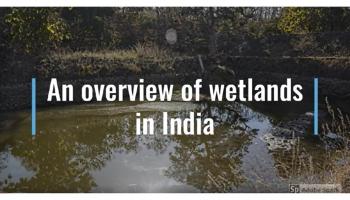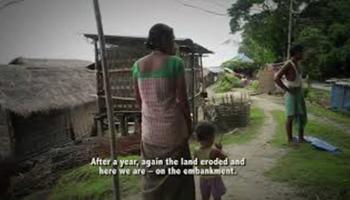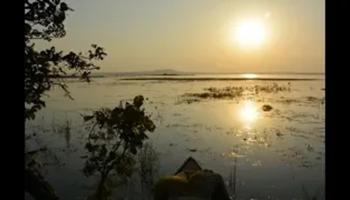Lakes, Ponds and Wetlands
Reminiscence by the waterside: Book review of Jeevan Leela
Posted on 29 May, 2015 06:53 PMWater touches our lives in many ways. Our childhood memories are often entwined with the rivers that we have crossed, lakes that we have seen and the ponds that we may have jumped in. In his Bharat Darshan, the author Kaka Kalelkar travels across the length and breadth of the country and takes us to many such places we may have visited but have probably forgotten about.

Renovation insulates pond from its devotees
Posted on 20 May, 2015 07:08 PMI was in Rasina, my ancestral village. It was a solemn occasion - the death of my eldest paternal uncle, and it was only the second death in our extended family after almost 18 years of my grandfather’s passing. A lot has changed in the village over time thanks to its premier location on the busy Karnal-Kaithal highway.

Jakkur Lake: a potential model for urban water sustainability
Posted on 16 May, 2015 10:00 AMJakkur Lake sits nestled behind the bustling Hebbal Highway that leads to Devanahalli International Airport. A pristine, quiet spot of nature in the midst of Bangalore, this lake stands testimony to the potential that exists to manage urban water sustainably, and in an integrated manner.

Environment Ministry lied to Supreme Court about the Uttarakhand dam report
Posted on 24 Feb, 2015 11:08 AMCentre presents an opposite picture in the Uttarakhand dam case

Karnataka government exposed on Yettinahole project
Posted on 24 Feb, 2015 10:40 AMYettinahole project called a drinking water project only to circumvent guidelines

Lake Alive: The Puttenahalli Kere Habba 2015
Posted on 23 Feb, 2015 09:09 PM
The pond with a purpose
Posted on 21 Feb, 2015 06:02 PMThe Bhuiyas, a group of people who belong to the Scheduled Castes in Jharkhand and Bihar, have historically been landless foragers -- a fact reflected in their name which means 'of the earth'.

Groundwater resources race against time
Posted on 21 Feb, 2015 12:36 PMThe Himalayas, an important part of the geography of India, extend along the entire Northern and North-Eastern boundary of the country. It spans six Indian States namely, Jammu and Kashmir, Himachal Pradesh, Uttaranchal, West Bengal, Sikkim and a major part of Arunachal Pradesh from west to east.

Water Untouched: A film on Dalits' lack of access
Posted on 19 Feb, 2015 08:59 AM“The Dalits of this country get access to water on the goodwill of the dominant caste. Water to untouchables is still miles away,” says Goldy M George, a Dalit activist and an expert on Dalit rights.

Arid, but water secure in Kutch
Posted on 16 Feb, 2015 11:34 PMFor many in Rapar taluka of Kutch, migration was a way of life due to the absence of rainfall; they went in search of greener pastures. But when the people realised their collective potential and how they could use it to resolve water scarcity in their villages, there was no stopping them ,and the compulsion to migrate reduced.








